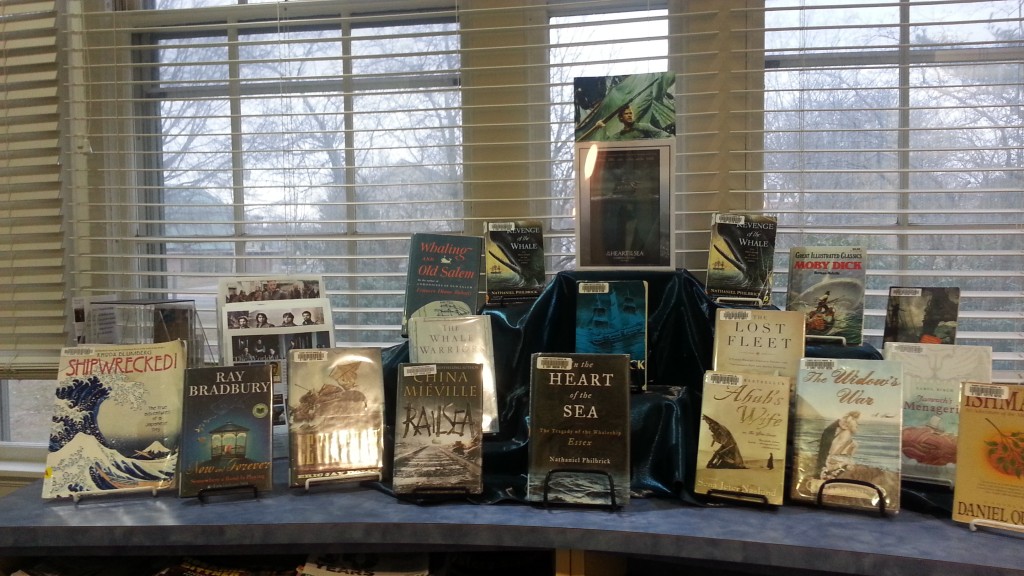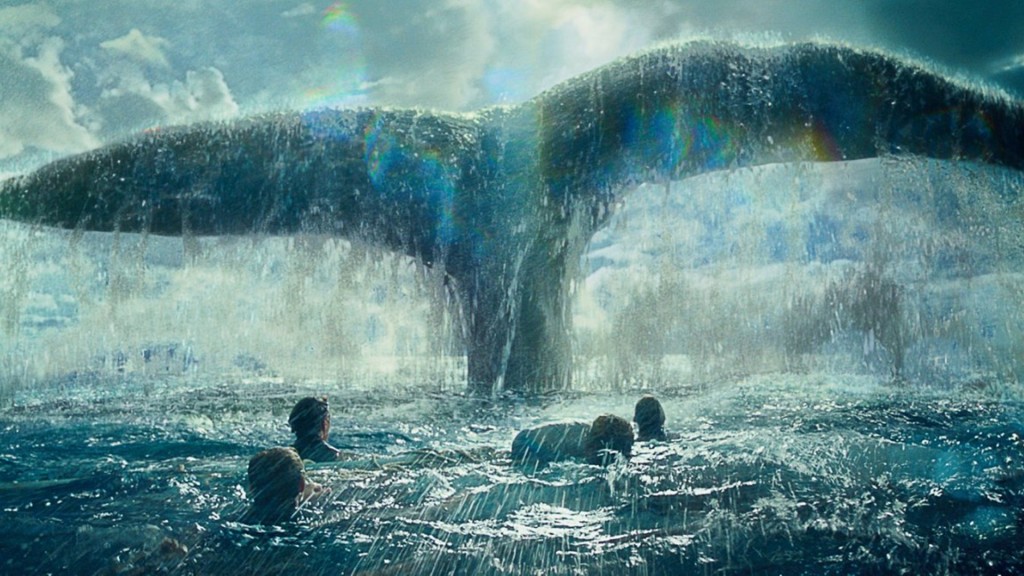 You’ve already read Nathaniel Philbrick’s In the Heart of the Sea: The Tragedy of the Whale Ship Essex, you’re this-close to making plans to see the film (starring Chris Hemsworth, Cillian Murphy and Ben Whishaw), and the whole thing has provoked a deeper curiosity about the whaling industry, perhaps, or maybe you’d like to read a re-imagined Moby Dick. Here are several titles for your consideration.
You’ve already read Nathaniel Philbrick’s In the Heart of the Sea: The Tragedy of the Whale Ship Essex, you’re this-close to making plans to see the film (starring Chris Hemsworth, Cillian Murphy and Ben Whishaw), and the whole thing has provoked a deeper curiosity about the whaling industry, perhaps, or maybe you’d like to read a re-imagined Moby Dick. Here are several titles for your consideration.
” The ordeal of the whaleship Essex was an event as mythic in the nineteenth century as the Titanic disaster was in the twentieth. Nathaniel Philbrick now restores this epic story — which inspired the climactic scene in Herman Melville’s Moby-Dick — to its rightful place in American history.
In 1819, the 238-ton Essex set sail from Nantucket on a routine voyage for whales. Fifteen months later, the unthinkable happened: in the farthest reaches of the South Pacific, the Essex was rammed and sunk by an enraged sperm whale. Its twenty-man crew, fearing cannibals on the islands to the west, decided instead to sail their three tiny boats for the distant South American coast. They would eventually travel over 4,500 miles. The next three months tested just how far humans could go in their battle against the sea as, one by one, they succumbed to hunger, thirst, disease, and fear.”
Shipwrecked!: the True Adventures of a Japanese Boy by Rhoda Blumberg
“In 1841, rescued by an American whaler after a terrible shipwreck leaves him and his four companions castaways on a remote island, fourteen-year-old Manjiro learns new laws and customs as he becomes the first Japanese person to set foot in the United States.”
Captains Courageous by Rudyard Kipling
“At the start of Captains Courageous, a spoiled rich boy is literally swept away—dashed overboard from an ocean liner. Luckily, young Harvey Cheyne is rescued by a passing fishing vessel. As it turns out, Harvey’s apparent misfortune in tumbling from a life of pampered luxury into the humble company of a fishing schooner becomes a blessing in disguise. Compelled by the captain to earn his keep, Harvey loses his affectations as he learns the rewards of an honest day’s labor amid the gruff and hearty companionship of the crewmen, who teach him to be worth his salt as they fish the waters off the Grand Banks of Newfoundland.”
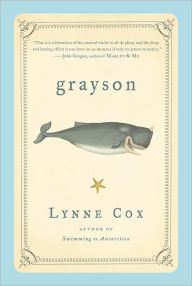 |
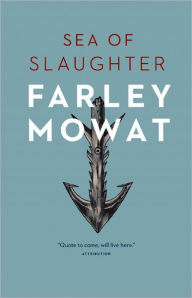 |
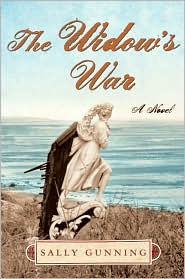 |
Men and Whales by Richard Ellis
“Ever since a human being first came across a dead whale and realized it could provide vast amounts of meat and oil, men have hunted whales. For a thousand years, whales have been mines of oil, meat, baleen, ivory, leather, and ambergris. In this copiously illustrated book, Richard Ellis delineates the complex history of men and whales. He tells the story of the world’s first commercial whalers, the Basques of tenth-century France and Spain; the birth of whaling as an industry during the settlement of New Zealand and Australia; the worldwide movement to protect the whale; and even the origins of the unicorn myth (a whale was responsible).”
Grayson by Lynne Cox
“Seventeen-year-old long distance swimmer Lynne Cox was out training in the cold Pacific one morning when she became aware something was swimming beside her. It was an 18-foot baby gray whale that had apparently been following her for some time. Lynne realized that–much as she needed to swim to shore herself to rest–the calf would follow her, likely beach itself, and die. Even so, if the mother could not be found, the calf would starve. Something so enormous as a mother whale 50 feet long suddenly seemed very small in the vast Pacific. Grayson is the remarkable true story–part mystery, part magical tale–of Lynne’s efforts to reunite mother and calf.”
Enoch’s Voyage: Life in a Whaleship, 1851-1854 by Enoch Carter Cloud
“This is a diary of my great-great-grandfather, Enoch Carter Cloud, who as a young man ran away to find adventure at sea. Thus begins the introduction by Cloud’s great-great-granddaughter, Elizabeth McLean, to the personal log of a young sailor on a 19th-century whaling vessel. The author journeys around the world giving richly detailed narratives of encounters with native peoples in Portugal, Africa, New Zealand, the Pacific islands, and the West Indies. He describes a number of whale chases in vivid language, with a surprising note og anguish at the slaughter of the harpoon whales fighting for their lives in a sea of blood.”
In Search of Moby Dick: the Quest for the White Whale by Timothy Severin
“The acclaimed adventure writer and explorer Tim Severin set off to the islands of the South Pacific in search of one of our most iconic modern myths. From the Marquesas Archipelago, where the twenty-one-year-old Melville deserted his whaling ship in 1842, through the Philippines, Tonga, and Indonesia, Severin follows a trail of ocean legend and lore to the last surviving islanders who hunt the great whale by hand, shadowing a victorious hunt from Stone Age boats and uncovering tantalizing evidence of the existence of a Great White Whale. In this captivating account of his voyage, Severin traces not only the origins of Melville’s legendary literary creation but also something of the spiritual relationship between the islanders and the creatures of the sea, the hunter and his prey.”
Ambassador to the Penguins: A Naturalist’s Year Aboard a Yankee Whaleship by Eleanor Mathews
“In 1912, a young naturalist named Robert Cushman Murphy was offered the opportunity of a lifetime to spend a year on one of the last Yankee whaleships out of New Bedford, on a voyage to the Antarctic. Only recently married, Murphy had many regrets at leaving his wife Grace so early in their life together, but he saw that the chance to journey to the end of the world, to bring back new specimens, to record what he saw, was also the chance to launch a stellar career.”
Sea of Slaughter by Farley Mowat
“The northeastern seaboard of North America, extending from Labrador to Cape Cod, was the first region of North America to suffer from human exploitation. Farley Mowat informs the extensive historical and biological research with his direct experience living in and observing this region. When it was first published nearly thirty years ago, Sea of Slaughter served as a catalyst for environment reform, raising awareness of the decline and destruction of marine and coastal species. Today, it remains a prescient and chilling environmental classic, serving, now as ever, as a haunting reminder of the impact of human interest on the natural world.”
The Journal of Brian Doyle: a Greenhorn on an Alaskan Whaling Ship by Jim Murphy
“In 1874, Brian Doyle records in his diary how he ran away from his home in San Francisco, joined the crew of a whaling ship, and endured storms, hostile shipmates, and being stranded in the Arctic.”
The Widow’s War by Sally Gunning
“Married for twenty years to Edward Berry, Lyddie is used to the trials of being a whaler’s wife in the Cape Cod village of Satucket, Massachusetts—running their house herself during her husband’s long absences at sea, living with the daily uncertainty that Edward will simply not return. And when her worst fear is realized, she finds herself doubly cursed. She is overwhelmed by grief, and her property and rights are now legally in the hands of her nearest male relative: her daughter’s overbearing husband, whom Lyddie cannot abide. Lyddie decides to challenge both law and custom for control of her destiny, but she soon discovers the price of her bold “war” for personal freedom to be heartbreakingly dear.”
The Whale Warriors: the Battle at the Bottom of the World to Save the Planet’s Largest Mammals by Peter Heller
“For the crew of the eco-pirate ship the Farley Mowat, any day saving a whale is a good day to die. In The Whale Warriors, veteran adventure writer Peter Heller takes us on a hair-raising journey with a vigilante crew on their mission to stop illegal Japanese whaling in the stormy, remote seas off the forbidding shores of Antarctica. The Farley is the flagship of the Sea Shepherd Conservation Society and captained by its founder, the radical environmental enforcer Paul Watson. The Japanese, who are hunting endangered whales in the Southern Ocean Whale Sanctuary, in violation of several international laws, know he means business: Watson has sunk eight whaling ships to the bottom of the sea.”
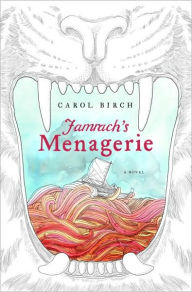 |
 |
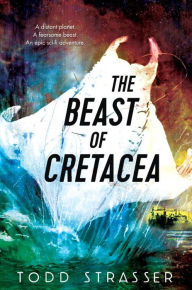 |
Jamrach’s Menagerie: a Novel by Carol Birch
“Nineteenth-century London comes vividly alive in this story a street urchin named Jaffy Brown. After a close call with an escaped tiger, Jaffy goes to work for Mr. Charles Jamrach, the famed importer of exotic animals. As the years pass, Mr. Jamrach recruits Jaffy and another boy named Tim to capture a fabled dragon during the course of an epic three-year whaling expedition in the East Indies. But when a violent storm sinks the ship, Jaffy and Tim are forced to confront their relationship to the natural world and the wildness it contains.”
Heart of a Samurai: Based on the True Story of Manjiro Nakahama by Margi Preus
“In 1841, rescued by an American whaler after a terrible shipwreck leaves him and his four companions castaways on a remote island, fourteen-year-old Manjiro, who dreams of becoming a samurai, learns new laws and customs as he becomes the first Japanese person to set foot in the United States.”
The Whiteness of the Whale by David Poyer
“After a tragic accident maims her laboratory assistant, Dr. Sara Pollard’s career as a primate behaviorist lies in ruins. With nothing left to lose, Pollard accepts an offer to join anti-whaling activists on a round-the-world racing yacht as the resident scientist, to sail from Argentina to the stormy Antarctic Sea. There they’ll shadow, harass, and expose the Japanese fleet, which continues to kill and process endangered whales in internationally-declared sanctuaries. But no one aboard is prepared for what Nature herself has in store, when they’re targeted by a massive creature with a murderous agenda of its own.”
Lowered Boats: a Chronicle of American Whaling by Foster Rhea Dulles
Harpooned: the Story of Whaling by Bill Spence
The Lost Fleet: a Yankee Whaler’s Struggle Against the Confederate Navy and Arctic Disaster by Marc L. Songini
“It’s the mid-ninteenth century and the American whaling fleet is struck by one hammer blow after the other. Yankee whalers are contending with icebergs, storms, rogue whales, sharks, hostile natives, and disease. Many whalers give up the life―but some carry on the vocation. One such man is a captain from Connecticut, Thomas William Williams. Not only does he go out on voyage after voyage, he even takes on board with him his tiny wife, Eliza, and his infant son and daughter. The Lost Fleet‘s thrilling narrative recounts Williams’ remarkable career, including a daring escape from the Confederate cruiser Alabama and a daring rescue and salvage of lost ships off Alaska’s coast. Songini has crafted a historical masterpiece in recording a family saga, a true narrative of adventure and death on the high seas, and a detailed and well-researched look at the demise of Yankee whaling.”
Leviathan: the History of Whaling in America by Eric Jay Dolin
“The epic history of the “iron men in wooden boats” who built an industrial empire through the pursuit of whales. Few things can capture the sheer danger and desperation of men on the deep sea as dramatically as whaling. Environmental writer Dolin chronicles the rise of a burgeoning industry, from its brutal struggles during the Revolutionary period to its golden age in the mid-1800s when a fleet of more than 700 ships hunted the seas and American whale oil lit the world, to its decline as the twentieth century dawned. This sweeping social and economic history provides rich and often fantastic accounts of the men themselves, who mutinied, murdered, rioted, deserted, drank, scrimshawed, and recorded their experiences in journals and memoirs. The book also contains a wealth of naturalistic detail on whales.”
The Beast of Cretacea by Todd Strasser
“Aboard the Pequod, seventeen-year-old Ishmael arrives on the planet Cretacea to hunt down great ocean-dwelling beasts to harvest and send back to the resource-depleted Earth. But the ship’s captain, Ahab, who lost his leg to the Great Terrafin years ago, is obsessed with hunting down the beast. The classic tale of Moby Dick as set in the future.”
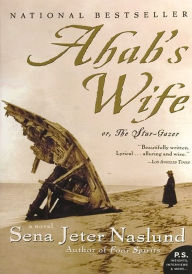 |
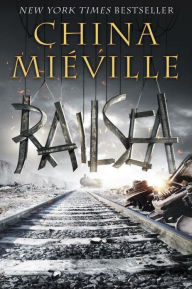 |
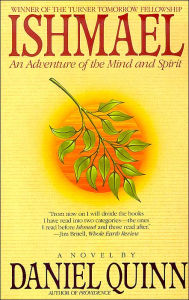 |
Ahab’s Wife, or, The Star-Gazer : a novel by Sena Jeter Naslund
“The adventures of Una Spenser who went to sea disguised as a cabin boy. Shipwrecked, she marries one of the survivors, then falls in love with Captain Ahab, a man obsessed with a white whale. She becomes involved in fighting slavery and in women’s rights.”
Revenge of the Whale: the True Story of the Whaleship Essex by Nathaniel Philbrick
“Recounts the 1820 sinking of the whaleship “Essex” by an enraged sperm whale and how the crew of young men survived against impossible odds. Based on the author’s adult book “In the Heart of the Sea.”
Moby Dick by Herman Melville
“A nineteenth-century tale of life aboard a New England whaling ship whose captain is obsessed with the pursuit of a large white whale.”
Railsea by China Miéville
“On board the moletrain Medes, Sham Yes ap Soorap watches in awe as he witnesses his first moldywarpe hunt: the giant mole bursting from the earth, the harpoonists targeting their prey, the battle resulting in one’s death & the other’s glory. But no matter how spectacular it is, Sham can’t shake the sense that there is more to life than traveling the endless rails of the railsea–even if his captain can think only of the hunt for the ivory-colored mole she’s been chasing since it took her arm all those years ago. When they come across a wrecked train, at first it’s a welcome distraction. But what Sham finds in the derelict–a kind of treasure map indicating a mythical place untouched by iron rails–leads to considerably more than he’d bargained for. Soon he’s hunted on all sides, by pirates, trainsfolk, monsters, & salvage-scrabblers. & it might not be just Sham’s life that’s about to change. It could be the whole of the railsea. Here is a novel for readers of all ages, a gripping & brilliantly imagined take on Herman Melville’s Moby-Dick.”
Now and Forever: Somewhere a Band is Playing and Leviathan 99 by Ray Bradbury
“The doomed crew of a starship follows their blind, mad captain on a quest into deepest space to joust with destiny, eternity, and God Himself . . .”
Ishmael by Daniel Quinn
“The narrator of this extraordinary tale is a man in search for truth. He answers an ad in a local newspaper from a teacher looking for serious pupils, only to find himself alone in an abandoned office with a full-grown gorilla who is nibbling delicately on a slender branch. “You are the teacher?” he asks incredulously. “I am the teacher,” the gorilla replies. Ishmael is a creature of immense wisdom and he has a story to tell, one that no other human being has ever heard. It is a story that extends backward and forward over the lifespan of the earth from the birth of time to a future there is still time to save. Like all great teachers, Ishmael refuses to make the lesson easy; he demands the final illumination to come from within ourselves. Is it man’s destiny to rule the world? Or is it a higher destiny possible for him—one more wonderful than he has ever imagined?”
A Whale for the Killing by Farley Mowat
“When an 80-ton Fin Whale became trapped in a lagoon near his Newfoundland home, Farley Mowat rejoiced: here was a unique chance to observe one of the world’s most magnificent creatures up close. But some of his neighbours saw a different opportunity altogether: in a prolonged fit of violence, they blasted the whale with rifle fire, and scarred its back with motorboat propellers. Mowat appealed desperately to the police, to marine biologists, finally to the Canadian press. But it was too late. Mowat’s poignant and compelling story is an eloquent argument for the end of the whale hunt.”
For these titles and more, visit our display in the New Book room.
